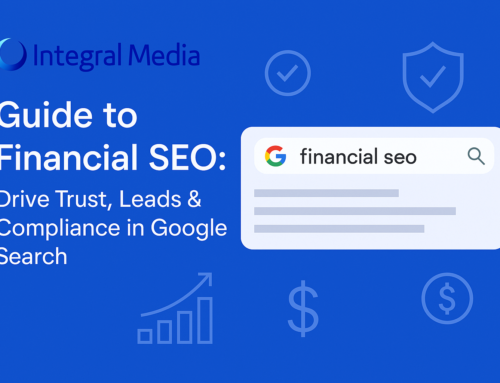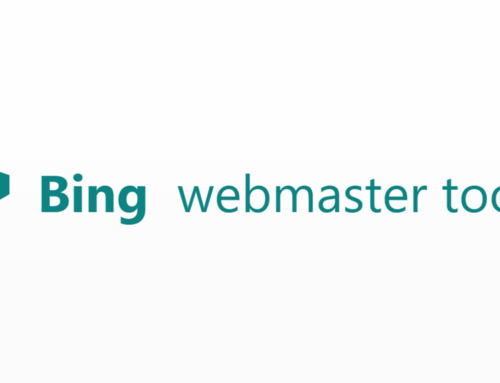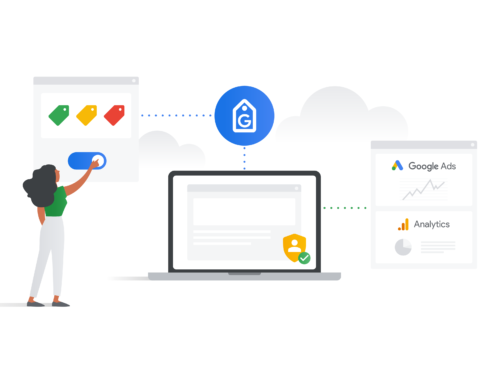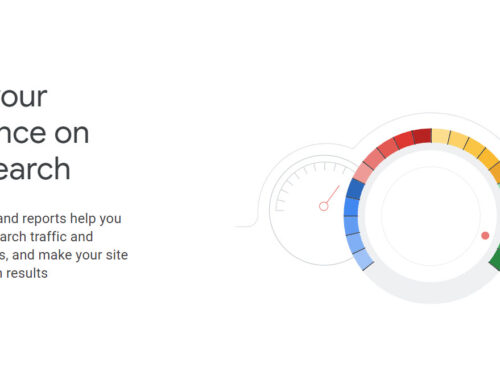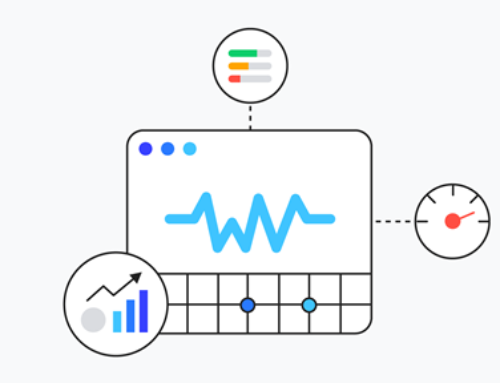Conducting search engine optimisation (SEO) audits are an essential part of any digital marketing strategy. An SEO audit is a comprehensive evaluation of a website’s current search engine performance, which involves analysing various factors that can impact its ranking on search engine result pages (SERPs).
This process helps identify technical and content-related issues that might be hindering the website’s visibility and performance on search engines. With the insights gained from an SEO audit, businesses can create an action plan to optimise their website, improve their search engine ranking, and attract more organic traffic.
The Importance Of SEO For Businesses
SEO is a fundamental part of any successful business as it helps them improve their online visibility in reaching their target audience through organic search results. Optimising a business’s website for search engines can lead to increases in website traffic, generating more leads and sales and therefore establishing themselves as a credible brand within their industry.
SEO provides a cost-effective way to implement a marketing strategy as it helps businesses target users who are actively searching for their products and services. In today’s digital age, SEO has become a vital component of any successful marketing strategy, and businesses that neglect SEO risk falling behind their competitors.
Investing in SEO: How an In-Depth Audit Can Boost Your Online Presence
An in-depth SEO audit can play a crucial role in boosting your online presence by identifying technical and content-related issues that are impacting your website’s search engine visibility and performance. By addressing these issues, you can improve your website’s user experience, optimise your content for search engines, and increase your chances of ranking higher in search engine results.
An SEO audit can also help you identify new opportunities to attract and engage your target audiences, such as by targeting new keywords or creating new content that addresses their specific needs and interests.
Ultimately, by conducting a thorough SEO audit and taking steps to optimise your website accordingly, you can position your business for greater success online, attracting more qualified leads, generating more sales, and establishing your brand as a leader in your industry.
The Value Of Conducting An SEO Audit Before Investing In SEO
Conducting an SEO audit before investing in SEO is critical for businesses because it helps them understand the current state of their website’s search engine optimisation and identify areas for improvement. Conducting SEO audits provide valuable insights into technical SEO and content-related issues that could be impacting a website’s search engine ranking and visibility.
By conducting an audit before investing in SEO, businesses can develop a more informed and targeted SEO strategy, which can lead to better results and a higher return on investment in the long run. The insights gained from an SEO audit can help businesses prioritise their SEO efforts, optimise their website more effectively, and ultimately achieve their online marketing goals.
How An Audit Can Improve Your Online Presence
By focusing on new keywords or developing fresh content that speaks to their particular needs and interests, an SEO audit may also assist you in finding new ways to draw in and engage your target audiences. Also, completing an audit can provide you with deep insights into the digital marketing tactics of your competitors, which will allow you to remain one step ahead of them as you establish yourselves as a major competitor.
An SEO audit is a powerful tool for improving your online presence as it assists you in identifying technical and content issues that may be hurting your website’s search engine ranking and presence. You can enhance your website’s user experience, optimise your content for search engines, and boost your chances of appearing higher in search engine results by taking care of these concerns.
Understanding The Components Of An SEO Audit
By understanding the key components of an SEO audit, businesses can gain valuable insights into their website’s strengths and weaknesses, and develop a targeted strategy for improving their search engine ranking and online visibility.
Technical SEO Analysis
Technical SEO analysis is a component of an SEO audit that evaluates the technical aspects of a website to ensure that it meets search engine requirements and can be easily crawled and indexed.
This analysis includes evaluating website site maps, URL structure, site speed, mobile responsiveness, internal linking, and other technical factors that impact website performance. By conducting a technical SEO analysis, businesses can identify technical issues that could be hurting their search engine ranking and take steps to rectify them.
Improving technical SEO can lead to a better user experience, faster loading times, and better search engine visibility, ultimately helping businesses attract more qualified traffic to their website.
Site Speed
Site speed refers to how quickly a website loads and responds to user requests. It is an important factor in user experience and can impact a website’s search engine ranking.
Slow-loading websites can lead to a poor user experience, with visitors bouncing off the site and potentially affecting conversion rates. In addition, search engines like Google have confirmed that site speed is a ranking factor in their algorithm.
Websites that load faster tend to rank higher in search engine results and attract more organic traffic. Therefore, optimising site speed is essential for improving user experience, reducing bounce rates, and attracting more qualified traffic to a website.
Mobile-Friendliness
Mobile-friendliness refers to a website’s ability to display and function correctly on mobile devices such as smartphones and tablets. With the rise of mobile internet usage, having a mobile-friendly website is essential for businesses to attract and retain mobile users.
A mobile-friendly website provides a better user experience by optimising the layout, content, and functionality for smaller screens and touch-based navigation.
Mobile-friendly websites also tend to rank higher in mobile search results, making them more visible and accessible to mobile users. Therefore, it is important for businesses to ensure their website is mobile-friendly to provide a better user experience and attract more mobile traffic to their website.
Crawlability And Indexability
Crawability and indexability are two key technical factors that impact a website’s search engine ranking and visibility. Crawlability or crawling refers to the ability of search engine crawlers to access and explore a website’s content and structure.
Indexability refers to whether a website’s pages are being indexed and included in search engine databases. If a website has issues with crawling or indexability, search engines may have difficulty understanding its content and structure, leading to a lower search engine ranking and visibility.
Therefore, it is important for businesses to ensure their website is easily crawlable and indexable by search engines, by implementing practices such as using a sitemap, optimising the robots.txt file, avoiding duplicate content, and addressing any technical errors that could prevent crawlers from accessing or indexing the website.
By improving crawling and indexability, businesses can increase their chances of ranking higher in search engine results and attracting more organic traffic to their website.
On-Page SEO Analysis
On-page optimisation is an essential component of SEO that focuses on optimising individual pages on a website to improve its search engine ranking and visibility. This involves optimising page content, structure, and HTML code to make it more relevant, valuable, and accessible to both search engines and users. On-page optimisation includes elements such as page titles, meta descriptions, header tags, keyword usage, content quality, and internal linking.
Keyword Optimisation
Keyword optimisation is a critical on-page SEO factor that involves strategically incorporating relevant keywords and phrases into website content to improve its search engine visibility.
By researching and identifying the keywords and phrases that potential customers use to search for products or services related to their business, businesses can optimise their website’s content to increase its relevance and authority in the eyes of search engines.
This includes incorporating keywords into page titles, headings, subheadings, meta descriptions, and throughout the content in a natural and relevant manner.
Effective keyword optimisation can improve a website’s search engine rankings for relevant queries, increase organic traffic, and attract more qualified leads to the website.
Content Quality
High-quality content is a crucial factor in on-page SEO analysis because it plays a significant role in attracting and engaging users, building website authority, and improving search engine visibility.
By creating and optimising high-quality content, businesses can provide valuable information and solutions to their target audience, establishing themselves as trustworthy and authoritative sources in their industry.
Overall, this can improve user engagement, increase brand awareness, and attract organic links which contribute to improved search engine rankings and visibility.
On the other hand, low-quality or irrelevant content can negatively impact a website’s search engine ranking and visibility, leading to reduced organic traffic and user engagement.
Metadata Optimisation
Metadata optimisation is a critical component of on-page SEO analysis that involves optimising the meta title and meta description of a web page. These elements appear in SERPs and provide a brief summary of the page’s content to the user.
By optimising the meta title and description to accurately and compellingly reflect the page’s content, businesses can increase the click-through rate from search engine users and improve their website’s search engine ranking.
Meta title and description optimisation includes using relevant keywords, creating compelling copy that entices users to click, and adhering to character limits to ensure the meta information is fully displayed in the SERP.
Off-Page SEO Analysis
Off-page SEO analysis refers to the examination of factors that affect a website’s search engine ranking and visibility but are not directly controlled by the website owner.
Off-page factors include backlinks, social media activity, online reputation, and other external signals that search engines use to determine a website’s authority, relevance, and trustworthiness.
By analysing and optimising these off-page factors, businesses can improve their website’s search engine rankings, attract more qualified traffic, and increase their online visibility and brand reputation.
Backlink Profile
Backlinks, (also known as inbound links) are links from other websites that point to a specific page on a website. Backlinks are an essential off-page SEO factor as they indicate to search engines that other websites consider the linked page to be valuable and relevant.
The more high-quality and relevant backlinks a website has, the more likely it is to rank well in search engine results pages. However, it is essential to note that not all backlinks are equal, and low-quality or spammy backlinks can harm a website’s search engine ranking and visibility.
Therefore, conducting a backlink analysis as part of an off-page SEO audit is essential to identify any problematic backlinks and take corrective action. By optimising their backlink profile and acquiring high-quality and relevant backlinks, businesses can improve their website’s authority, relevance, and trustworthiness, leading to increased organic traffic and higher search engine rankings.
Social Media Presence
The influence that social media presence has on a website’s online visibility, brand reputation, and backlink profile makes it a critical component of off-page SEO analysis. Businesses may use social media platforms like Facebook, Twitter, Instagram, and LinkedIn to communicate with their target audience, develop brand recognition, and promote their content.
A company’s website or content may receive more links from other websites if it has a strong social media presence, which may improve the company’s backlink profile and search engine ranking. A website’s online reputation may also be impacted by social media activity, with good reviews, ratings, and social shares boosting a website’s authority and trustworthiness in the eyes of search engines.
Brand Reputation
A strong brand reputation impacts a website’s authority and trustworthiness, attracting high-quality backlinks, positive reviews, and social shares, which can positively impact its search engine ranking and visibility. Contrarily, a negative brand reputation can harm a website’s search engine performance, leading to decreased traffic and lower rankings.
Identifying Opportunities For Improvement
Identifying areas for improvement is crucial for an effective SEO audit, as it helps optimise website performance and improve search engine visibility, user experience, and overall online presence. By analysing different aspects of a website such as technical issues, content quality, and on-page/off-page factors, businesses can ultimately increase website traffic, improve search engine rankings, and drive more conversions.
Prioritising SEO Issues
To learn how to prioritise SEO issues during an SEO audit, it’s important to first understand the impact each issue has on the website’s overall SEO performance. From there, it’s recommended to prioritise issues that have the greatest impact on the website’s search engine visibility, user experience, and conversion rates.
Additionally, it’s important to consider the resources available for implementing fixes and the level of effort required for each issue. This can help businesses identify and prioritise high-impact issues that are feasible to address within the given resources and timeframe.
Developing An Action Plan To Address Key Areas
When you select our SEO agency, Integral Media to develop an action plan to address any key SEO areas of concern, you will gain instrumental knowledge and a comprehensive audit of your website, providing you with a report that will include a prioritised list of actionable recommendations to address technical issues, content quality, on-page and off-page factors, and other areas that may need urgent attention.
With this information, you can develop an action plan that outlines the steps you need to take to address each of these key areas, including the resources required, timelines, and expected outcomes. By working with our experienced team, you can ensure that your action plan is based on the best current practices and industry standards.
Setting Realistic Goals And Expectations For SEO Improvements
Setting realistic goals and expectations for SEO is significant as it’s a long-term process that demands consistent effort and time. Rushing for considerable improvements in search engine rankings and traffic can lead to disappointment and frustration.
But by developing a practical timeline and action plan that aligns with your business objectives and resources, you can focus on implementing effective SEO strategies and tactics, measuring progress, and making necessary adjustments to achieve your goals over time. That’s why setting realistic goals allows you to measure the success of your SEO efforts better and make informed decisions about future investments in SEO.
Implementing SEO Audit Recommendations
SEO audits provide valuable insights into the strengths and weaknesses of your website’s SEO performance, and recommendations can help you address issues and optimise your website for search engines. However, implementing these recommendations can be a challenging task that requires careful planning, resources, and expertise and often requires a professional team.
Working With An SEO Agency Or In-House Team
When it comes to SEO, businesses have two options: working with an SEO agency like Integral Media or building an in-house team. Both options have their pros and cons, but working with an SEO agency, like Integral Media can provide businesses with access to a team of experienced SEO professionals, access to the latest SEO tools and technologies, and flexibility in terms of budget and resources.
Tracking Progress And Making Data-Driven Decisions
Tracking progress and making data-driven decisions is an important aspect of implementing SEO audit recommendations into your business.
By regularly monitoring key performance indicators (KPIs) such as website traffic, search engine rankings, and conversion rates, you can measure the effectiveness of your SEO efforts and make data-driven decisions about future optimisations.
It’s important to establish a baseline and set realistic goals for each KPI to track progress over time. By regularly reviewing and analysing data, you can identify trends, opportunities, and areas for improvement, and make informed decisions about how to allocate resources to achieve your SEO goals.
Regularly Updating Your SEO Strategy To Stay Ahead Of The Competition
Regularly updating your SEO strategy is essential to stay ahead of the competition in search engine rankings. As search engine algorithms and user behaviour evolve, it’s important to adapt your SEO tactics to ensure your website remains relevant and visible.
By keeping up-to-date with the latest SEO trends and continuously improving your website’s performance, you can maintain a competitive edge and achieve long-term success in search engine rankings.
Measuring The Impact Of Your SEO Investment
Measuring the impact of your SEO investment requires analysing and tracking various metrics over time, such as website traffic, search engine rankings, keyword performance, conversion rates, and revenue. By using tools such as Google Analytics and Google Search Console, you can track and analyse your website’s performance and identify areas for improvement.
Key Performance Indicators (KPIs) To Track
The key performance indicators (KPIs) in SEO are metrics that are used to measure the effectiveness of an SEO campaign. The most important KPIs in SEO include:
- Organic search traffic
- Search engine rankings
- Click-through-rate (CTR)
- Conversion rate
- Bounce rate
- Time on site
- Backlink quality and quantity
By tracking these KPIs, businesses can gain insights into the success of their SEO efforts and make data-driven decisions to optimise their strategy and achieve their goals.
Understanding The ROI Of Your Seo Efforts
Understanding the return on investment (ROI) of your SEO efforts is crucial to determine the effectiveness of your strategies and justifying your investment. By tracking metrics such as website traffic, conversion rates, and revenue generated from organic search, you can calculate the ROI of your SEO efforts and make data-driven decisions to optimise your strategy.
Adapting Your Investment Strategy Based On Results
Adapting your SEO investment strategy based on results is critical to ensure long-term success.
By regularly evaluating your SEO performance and making data-driven decisions, you can optimise your strategy, reallocate resources, and achieve better ROI over time.
Conclusion
Investing in Integral Media’s SEO services can have significant long-term benefits for your business, including improved search engine rankings, increased website traffic, and higher conversions.
By conducting regular SEO audits and implementing recommendations, you can ensure that your website remains optimised for search engines and users and that your SEO strategy is aligned with your business objectives. To maximise your online presence and ROI from your SEO investment, it’s important to work with a reputable agency like ours that provides comprehensive SEO audit and optimisation services.
As the digital landscape continues to evolve, it’s important to stay ahead of the competition by adapting your SEO investment strategy based on results and investing in ongoing SEO efforts.
With Integral Media’s expertise and support, you can achieve sustainable growth and success in the online marketplace. Contact us now.



